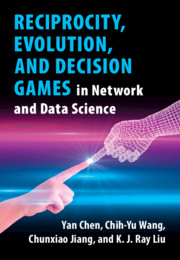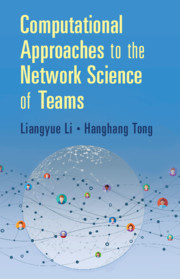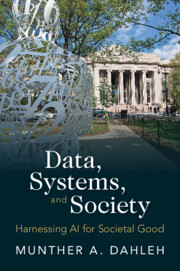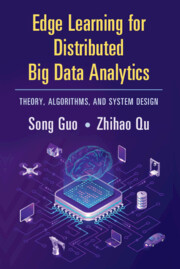Reciprocity, Evolution, and Decision Games in Network and Data Science
Learn how to analyse and manage evolutionary and sequential user behaviours in modern networks, and how to optimize network performance by using indirect reciprocity, evolutionary games, and sequential decision making. Understand the latest theory without the need to go through the details of traditional game theory. With practical management tools to regulate user behaviour, and simulations and experiments with real data sets, this is an ideal tool for graduate students and researchers working in networking, communications, and signal processing.
- The first book on comprehensive treatment of evolutionary games, indirect reciprocity, and sequential decision making
- Describes the applications of game-theoretic models in real world systems, including wireless and social networks
- Develops and expands new game-theoretic models such as the Chinese restaurant game.
Reviews & endorsements
'This advanced text is a great start for more in-depth explorations into complex system-modeling areas. Recommended.' J. Brzezinski, Choice Connect
Product details
July 2021Hardback
9781108494748
472 pages
250 × 175 × 26 mm
1.05kg
Available
Table of Contents
- 1. Basic Game Theory
- Part I. Indirect Reciprocity:
- 2. Indirect Reciprocity Game in Cognitive Networks
- 3. Indirect Reciprocity Game for Dynamic Channel Access
- 4. Multiuser Indirect Reciprocity Game for Cooperative Communications
- 5. Indirect-Reciprocity Data Fusion Game and Application to Cooperative Spectrum Sensing
- Part II. Evolutionary Game:
- 6. Evolutionary Game for Cooperative Peer-to-Peer Streaming
- 7. Evolutionary Game for Spectrum Sensing and Access in Cognitive Networks
- 8. Graphical Evolutionary Game for Distributed Adaptive Networks
- 9. Graphical Evolutionary Game for Information Diffusions in Social Networks
- 10. Graphical Evolutionary Game for Information Diffusions in Heterogeneous Social Networks
- Part III. Sequential Decision Making:
- 11. Introduction to Sequential Decision Making
- 12. Chinese Restaurant Game: Sequential Decision Making in Static Systems
- Dynamic Chinese Restaurant Game: Sequential Decision Making in Dynamic Systems
- 14. Indian Buffet Game for Multiple Choices
- 15. Hidden Chinese Restaurant Game: Learning from Actions
- 16. Wireless Network Access with Mechanism Design
- 17. Wireless Network Access with Mechanism Design
- 18. Social Computing: Answer vs. Vote.







